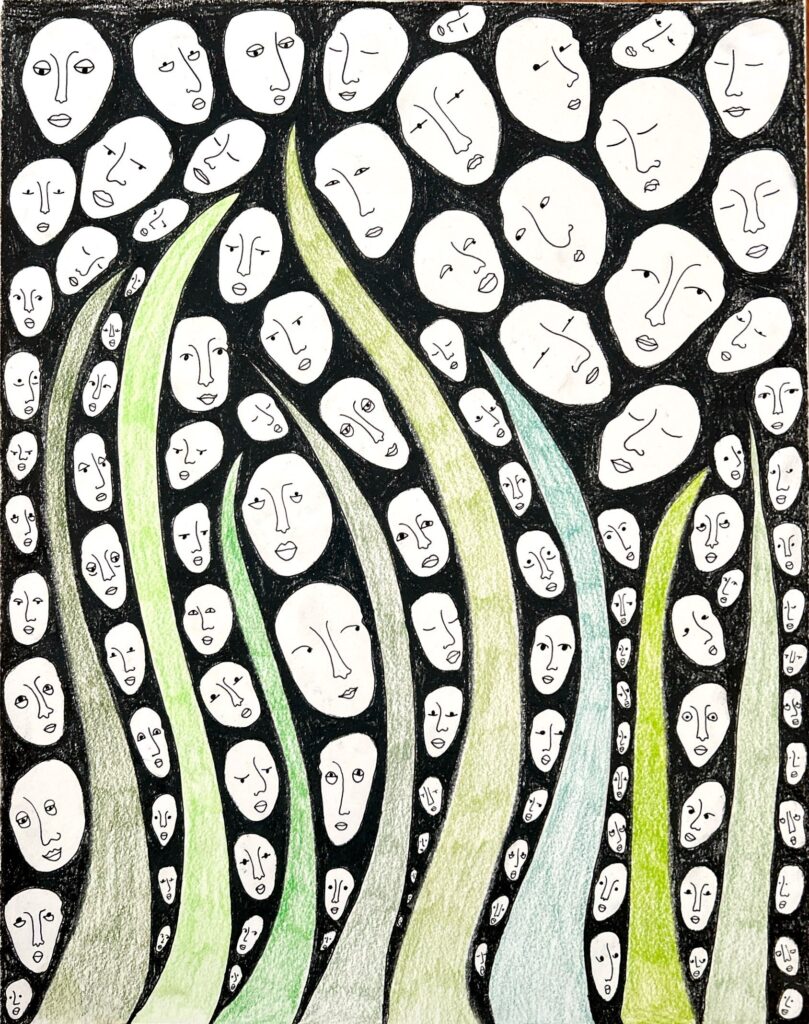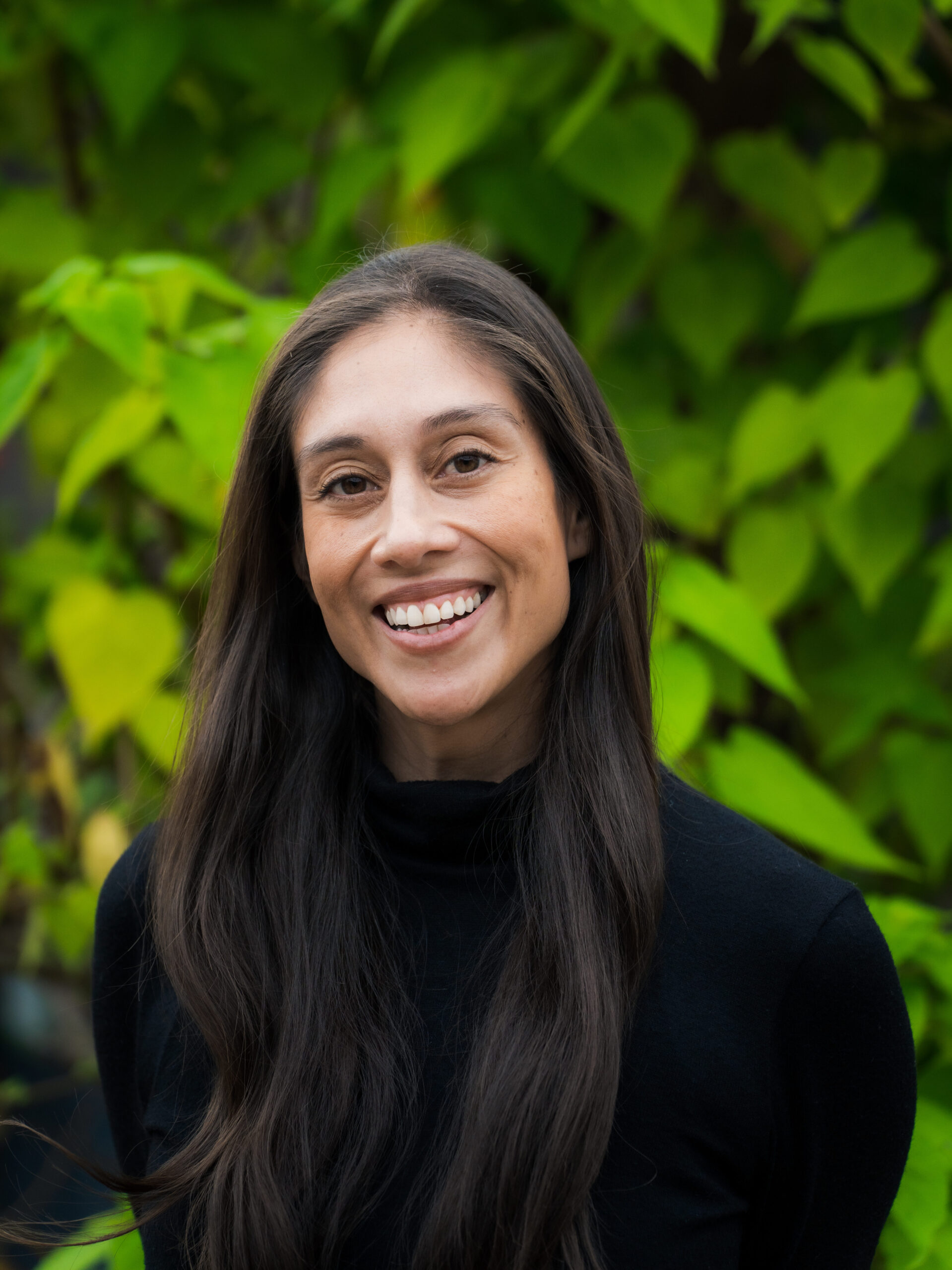The following is an excerpt from “Israel: Democracy, Race, Ethnicity, and More” (Fragments #2).
by Dr. Analucía Lopezrevoredo

In the harrowing aftermath of the October 7 attack by Hamas on Israel and the ensuing war waged against Hamas, the magnitude of loss and suffering has reached profound levels, affecting Israelis and Palestinians, as well as individuals from over 40 countries. Compounding this tragedy is the emergence of a virtual culture war on social media, driven by many who have no tangible connection to the land. This digital battleground is rife with misinformation, malinformation, and disinformation, propagated by individuals who will not bear the burden of rebuilding or feel the acute pain shared by both Jews and Palestinians. Tragically, this internet war has intensified binary thinking, widening the divide over the past four months between Palestinians and Israelis, their supporters, and their critics. This polarization fails to recognize the critical truth: Everyone is losing in this conflict, and the only viable path forward is one forged together.
These urgent questions among peace activists remain: Where do we go from here in the quest for peace? How can we infuse new vitality into the peace discussions between Israelis and Palestinians? These inquiries stem from a pragmatic understanding that the nearly 13 million residents of Israel, the West Bank, and Gaza are inexorably bound to this land as their home.
At this critical moment, Israel and Palestine stand at a crossroads, emblematic of the intricate evolution of democracies amid a mosaic of diverse societal values and norms. Dynamic activism in Israel, coupled with the Palestinian drive for self-determination, underscores the formidable challenge of integrating varied perspectives into a cohesive democratic framework. This task is further complicated by the digital echo chambers and misinformation campaigns that cloud public perception and understanding. In deciphering these complex dynamics, it is imperative to resist the temptation to oversimplify the multifaceted political landscape of both Israel and Palestine. A more enlightening perspective may be gleaned from examining the histories of Latin American countries, each presenting valuable, contextually relevant lessons for Israel and Palestine.
Examining the Brazilian landscape, the Diretas Já movement of the mid-1980s serves as a prime example of public resurgence against prolonged military oppression that had been in place since 1930. The movement wasn’t just a transient wave but a crescendo of the collective yearning for transformative change. The 2018 election of Jair Bolsonaro, a president bearing some resemblance to both Donald Trump and Benjamin Netanyahu, shows that this sort of democratic advance is never a one-way street — and his defeat in 2022 by Luiz Inácio “Lula” da Silva is a reminder that democracy can bounce back from autocratic rule. During Lula’s reelection, an unexpected surge of support came from diverse quarters, most notably from the long-marginalized indigenous communities, defying predictions of their low electoral turnout. Their remarkable engagement, despite the adversities they encountered in the nation’s parliamentary dynamics and Bolsonaro’s antagonistic policies, underscores the potent power of civic participation in reshaping political outcomes. From this chapter, Israel can glean the vitality of collective civic participation — the act of engaging in political processes — and the transformative potential it holds to influence political processes.
In Chile, the pursuit of democracy emerged from the oppressive shadows of Pinochet’s regime, which had begun in 1973. The events of 1988 stand as a historic testament to the people’s unified vision of democratic emancipation. The mass mobilizations and decisive plebiscite of that year not only resulted in a fresh democratic constitution but also illuminated the transformative power of peaceful resistance. This narrative offers Israel and Palestine a compelling reminder of the inherent potency of civic unity and peaceful dissent to reshape political structures. It also offers Israel a compelling illustration of how civic unity — characterized by shared values and collective aspirations — paired with peaceful dissent can reshape political landscapes.
Colombia’s story is painted with the hues of reconciliation, chronicling the enduring conflict and eventual accord between the government and the FARC rebels. The peace agreement of 2016 epitomizes the national determination to confront historical wounds and sow the seeds of healing, underscoring the promise embedded in dialogue and commitment to mutual understanding and progress. This tale is an example for Israel and Palestine, illuminating a path towards addressing long-standing grievances and fostering reconciliation within its diverse demographic fabric.
Venezuela, embroiled in a tumultuous political climate marked by figures like Juan Guaidó (who challenged Nicolas Maduro and served as acting president from 2019-2022), epitomizes the multifaceted struggle for democratic realization. The resilience exhibited by the Venezuelan people, amid political tribulations and economic crises, embodies the indomitable human aspiration for freedom and equity. This narrative serves as a poignant reminder to both Israel and Palestine of the enduring human spirit and the undying quest for democratic ideals even in the face of adversity.
Furthermore, countries like Guatemala and El Salvador, with their peace accords post brutal civil wars, and Argentina’s “Nunca Más” initiative post-military dictatorship, exemplify the importance of addressing historical injustices, paving the way for reconciliation and democratic transition. These instances can inspire Israel and Palestine to foster dialogue and confront their past, laying foundations for a shared future.
These Latin American examples, rich with transformative experiences and lessons, hold profound significance for Israel and Palestine as they chart their respective courses through treacherous landscapes. The political landscape of Israel and Palestine is a labyrinth of intricate influences and nuanced power dynamics, now further convoluted by the distorting effects of social media warfare. These elements significantly influence media narratives and public discourse, sculpting the identities of Israel and Palestine on both national and international stages.
The challenges faced by Israel and Palestine, now amplified by the digital dissemination of polarized viewpoints, are not unique to the region. Latin America’s history of social movements provides a wellspring of valuable insights. Each aforementioned journey tells a story of resilience and the power of collective spirit. The empowerment derived from civic engagement, the imperative to address historical scars, and the commitment to a shared future — all can be pivotal in shaping not only a new peace process, but in restoring a region.

DR. ANALUCÍA LOPEZREVOREDO (she/her/ella) is an activist and sociologist known for her scholarly contributions in the fields of migration studies, identity development, and culture preservation. A proud immigrant whose upbringing traverses Peru, Spain, and the United States, she brings a unique perspective to her research and community engagements.Dr. Lopezrevoredo’s scholarly journey led her to establish Jewtina y Co. in 2019, an innovative initiative dedicated to fostering a vibrant community for Latin Jews worldwide, where they can collectively celebrate and delve into the intricacies of Latin-Jewish multiculturalism. Recognized for her achievements, Dr. Lopezrevoredo has been honored with the National Young Woman of Distinction award and has earned esteemed accolades as a former Fulbright and Rotary International Scholar. As a dedicated global citizen, Dr. Lopezrevoredo’s insatiable curiosity has taken her on profound journeys across 137 countries, traversing all seven continents and immersing herself in diverse cultures.
